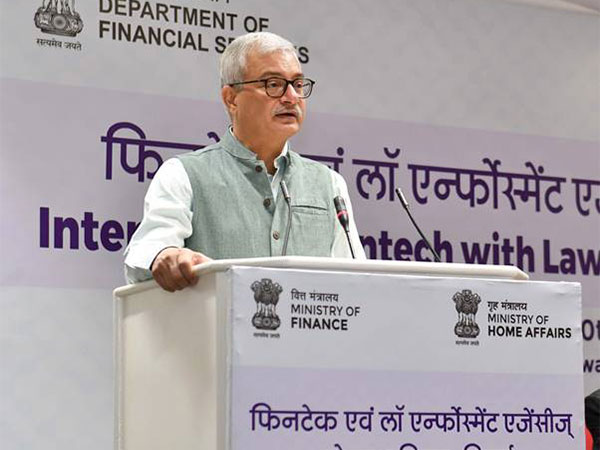New Delhi: The Department of Financial Services (DFS), Ministry of Finance, in collaboration with the Indian Cyber Crime Coordination Centre (I4C), Ministry of Home Affairs, organized a half-day workshop aimed at fostering collaboration between Law Enforcement Agencies (LEAs) and stakeholders in the Start-up and Fintech ecosystem.
According to a press release by the Ministry of Finance, the workshop, held in New Delhi, brought together heads of approximately 60 Fintech companies, four Fintech Associations, 23 State Police Departments, and various central government ministries and agencies concerned with financial technology and cybersecurity.
The event aimed to address key challenges such as cybersecurity and digital financial frauds while promoting trust and confidence among ecosystem partners.
Addressing the participants, Dr Vivek Joshi, Secretary of DFS, highlighted the significant contributions made by Fintechs to India’s economic growth and stressed the need for greater collaboration among the government, regulators, and private sector to fully harness the sector’s potential.
He emphasized that Fintech companies, being technology-driven, require cooperation from regulators and LEAs as they expand their operations.
During the workshop, Fintech Associations presented operational modalities and challenges faced by Fintech companies, while LEAs shared best practices in combating cybercrime and financial fraud.
I4C highlighted various aspects of financial fraud through its Citizen Financial Cyber Frauds Reporting and Management System (CFCFRMS), including Mule Accounts, ATM hotspots, and Fintech Merchant abuse.
During the workshop, several key points were deliberated to address the challenges faced by the Fintech sector and law enforcement agencies in combating cybercrime and financial fraud.
Participants discussed the role of technology in providing accessibility to financial services, emphasizing its potential to reach underserved populations and improve financial inclusion.
Strategies to control the use of money mules, who facilitate illicit fund transfers, were also explored as a crucial aspect of fraud prevention.
Another significant topic of discussion was the appointment of key contact points or nodal officers by Fintech companies to liaise with law enforcement agencies.
This measure aims to enhance coordination and communication between the two parties for more effective collaboration in combating financial crimes.
Real-time monitoring of data infringement emerged as a priority, with both Fintech companies and law enforcement agencies highlighting the importance of promptly addressing security threats.
Geotagging of digital transactions was proposed as a method to track money trails and identify suspicious activities more effectively.
Participants also discussed the creation of a suspicious registry of Business Correspondents (BCs) and fraudsters involved in financial frauds.
This registry would aid in fraud detection and prevention efforts by providing a centralized database of known offenders.
Regular audits of digital Know Your Customer (KYC) processes were emphasized as a means to foster trust and accountability within the financial ecosystem.
Additionally, discussions centered around establishing a mechanism for quickly freezing and unfreezing accounts to facilitate the faster recovery of defrauded money.
Ensuring data privacy and preventing data theft were identified as critical challenges that require robust mechanisms.
Participants explored various strategies to safeguard sensitive financial information and prevent unauthorized access to data.
The modernization of digital infrastructure through technologies like IPv6 and API integration was discussed to enhance the efficiency and security of financial transactions.
Leveraging these technologies can improve the overall resilience of the Fintech sector against emerging cyber threats.
Insights on emerging trends in cybercrime and financial frauds were provided by Gujarat, Haryana, and Uttarakhand State Police Departments, along with I4C.
The workshop concluded with a panel discussion comprising LEAs focusing on the prevention and mitigation of cybercrime and financial frauds.
The workshop was attended by various stakeholders, including the Ministry of Electronics and Information Technology (MeitY), Department of Telecommunications (DoT), Department for Promotion of Industry and Internal Trade (DPIIT), Reserve Bank of India (RBI), Pension Fund Regulatory and Development Authority (PFRDA), National Payments Corporation of India (NPCI), Business Correspondent Federation of India (BCFI), and I4C.




